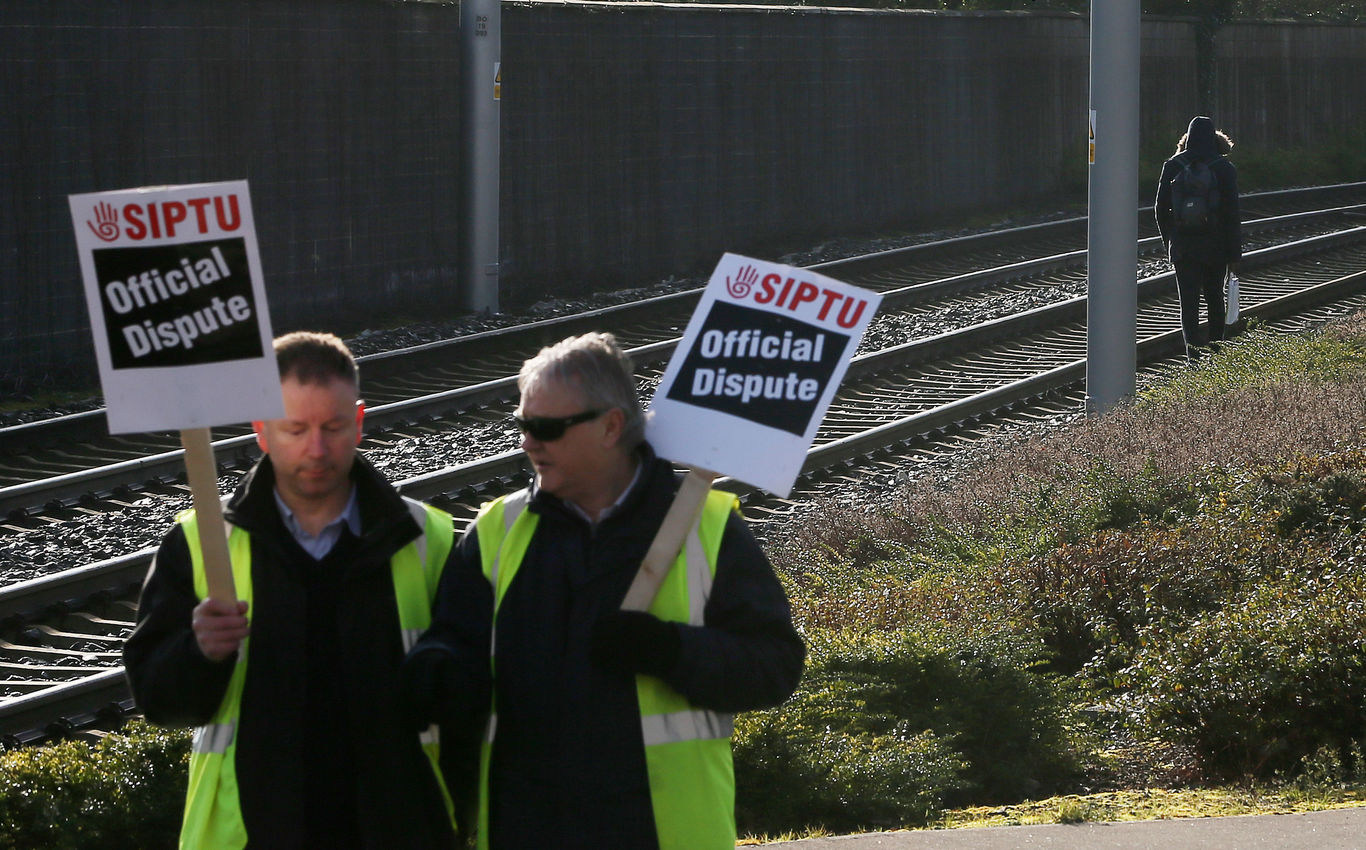How Leo Varadkar's plan to 'ban' essential public sector workers from strikes could look
A similar scheme was recently introduced by the UK’s Tory government.
IN HIS MANIFESTO to become Ireland’s fourteenth taoiseach, Leo Varadkar outlined his intention to introduce legislation ‘banning’ public sector workers operating essential services from striking.
The measures proposed by the Taoiseach emulate the recently enacted trade union legislation in the UK.
Essential services
The proposed legislation would make Labour Court recommendations binding on employers and unions in ‘essential public and security services’ to be determined by the Irish legislature, the Oireachtas.
The Taoiseach’s manifesto also provides that the Labour Court will be the final forum for settling trade disputes.
Commenting on the manifesto, Varadkar referred to air traffic control personnel and Luas drivers as the most likely essential public services that could be precluded from strike action following a Labour Court recommendation.
The Taoiseach also outlined that these essential public services may include emergency services “where it is a matter of life and death”.
Unsurprisingly, representatives from public service trade unions have already stated their intention to oppose the proposed legislation, with one trade union leader commenting that “strike ballots” should be expected.
The current position
The right to go on strike is governed by the provisions of the Industrial Relations Acts, 1969–2015. It is a legal requirement that a trade union must organise a secret ballot before engaging in a strike.
All workers called on to engage in the strike must be given a chance to vote in that secret ballot. Failure to hold a secret ballot, or to conduct a secret ballot correctly, may lead to any subsequent action being deemed unlawful.
In addition, a trade union must give the employer at least one week’s notice of a strike or industrial action.
UK legislation
The proposed legislation is very similar to the recently enacted trade union act in the UK. Under the UK legislation, for a strike ballot to be valid, 40% of all eligible members in ‘important public services’ are required to vote.
These ‘important public services’ in the UK include health, fire, transport, education of those under 17, nuclear decommissioning and border security.
The conclusion
It is too soon to tell whether the Taoiseach’s manifesto will be acted upon and, if it is, whether specific service areas will be characterised as “essential” like in the UK.
If the proposals do ultimately become law, service workers in the areas of air traffic control, Luas transport, and certain emergency services may find their industrial action rights substantially curtailed.
Avril Daly is a senior associate on the employment law and benefits team at Mason Hayes & Curran.
If you want to share your opinion, advice or story, email opinion@fora.ie.






